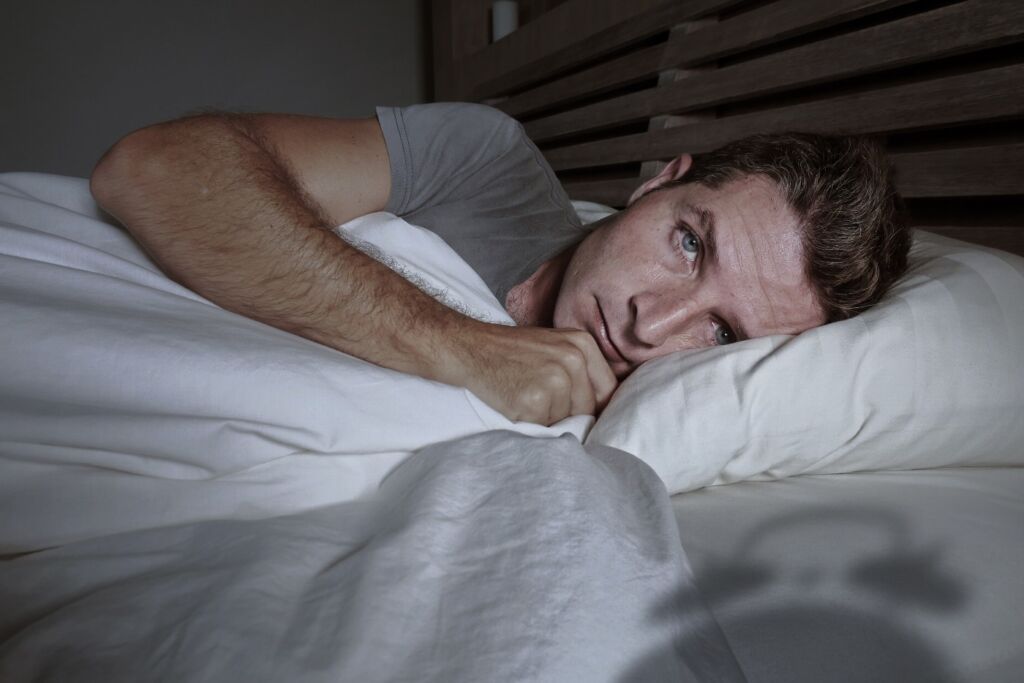Does “I can’t sleep because of anxiety” describe your recent struggles. We could easily call 2020 ‘the year of anxiety’ as stress levels for many Americans spiked due to the pandemic. And the result has left many awake at night when they should be sleeping.
Maybe you’ve caught yourself saying one or more of the following:
“I’m so stressed I can’t sleep.”
“Why can’t I sleep?”
“I can’t sleep due to anxiety.”
“I can’t fall asleep.”
If you relate, you also fully understand that few challenges can lead to as much difficulty and compromised mental health as an ongoing sleep deficit. You know the negative cycle has to stop, but then yet another night comes and goes with the same stressors and inadequate rest.
How do you stop this anxiety-induced pattern of sleep deprivation? Here are a few ideas to try.
Get Up and Do Something
Yes, it may sound counterintuitive, but if you stay in bed fretting over the ticking clock and tomorrow’s cares, you’ll likely only become more stressed out. Especially if it’s been a difficult night, it might be worth getting up for a while.
Don’t place a heavy burden on yourself when you step out of bed. Just do something that isn’t stressful. Try taking a shower or drinking a cup of herbal tea. Other options could include stepping outside for some fresh air or listening to a comforting story. Once your frustration over your sleep difficulties has subsided, give sleep another try.
Practice Mindfulness
Repetitive worry-filled thoughts plague many anxiety strugglers at night. The possibilities are endless when it comes to what these concerns could entail. They may include worries over your relationships, work, finances, health, among others. Rumination can be destructive at any time. But the moments when you’re tired and need rest are when it often can cause the most damage.
When these thoughts visit you at night, it can be easy to rationalize the need to focus on them to ‘problem-solve.’ But remember, sleep time generally isn’t the time to problem-solve. And without the vital energy proper rest provides, you won’t be able to tackle the problems you’re concerned about when the time arrives to do so.
One way to get your mind off the negative and worry-filled dialogue you experience at night is to practice mindfulness. Bring yourself back to the present instead of the temptation to focus on the worst-case scenario of the future.
Focus on non-stressful aspects of life in the present moment instead of the ‘what if’ worries of the future. Mindfulness allows your body to relax while rumination does the opposite.
Avoid Using Your Phone During Sleep Hours
In her “Psychology Today” article entitled How to Calm Your Racing Mind So You Can Sleep, Susan Biali Haas M.D. shares the following about cell phone usage during sleeping hours:
“First of all, the light from the phone is stimulating to the brain and can suppress melatonin release (melatonin helps you sleep). The best solution is to not look at your phone after 9 p.m. (or an hour or two before bed).”
Resist the urge to read the news in bed (or out of bed, for that matter) during sleeping hours as well. Reading about stock market uncertainties, spiking COVID-19 cases, murders and nationwide unrest is the perfect recipe for a crummy night’s sleep.
Yes, by all means, stay informed. But your sleep hours are precious and should be guarded. Use your non-sleep hours to catch up on the latest news while setting healthy time limits on media consumption.
Can’t Sleep Because of Anxiety? Counseling Could Help
Insomnia treatment for what appears to be anxiety-related can be complicated. It could be the result of a physical health condition, anxiety disorder, depression or a complex combination of factors. There are plenty of other possibilities besides.
Because of the intricacies of sleep disturbances and what’s at stake if you don’t get adequate sleep, it makes sense to consider meeting with a professional counselor who has the tools to help you sort out challenges like insomnia. You’ll discover evidence-based ways to get better sleep through therapy. That could include CBT for insomnia (cognitive behavioral therapy). You’ll also get to address any underlying reasons for your anxiety and stress.
If you’d like to learn more about how the OC Relationship Center can help, please get in touch. We provide anxiety counseling in Mission Viejo, CA and anxiety counseling in Newport Beach, CA. Virtual Counseling (teletherapy) is also an option. Scheduling an appointment with us is quick and confidential.



